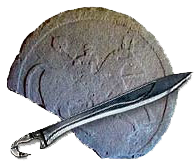Autor: bracarense
viernes, 29 de abril de 2005
Sección: Lenguas
Información publicada por: bracarense
Mostrado 20.530 veces.
El Gallego-Portugués y sus relaciones de substrato con la Aquitania
El gallego-portugués, nos enfrenta con nuevas y diversas discusiones y con problemas medio resueltos o por resolver: problemas que rebasan con mucho el área gallego-portuguesa y que alcanzan no sólo más allá de la cordillera cántabro-astúrica hasta tierra vasca y la Gascuña, sino incluso hasta Cerdeña y el Sur de Italia. Sin embargo, también aquí empiezan a esbozarse ya algunos rasgos con claridad.
Continua em...
http://www.instituto-camoes.pt/cvc/hlp/biblioteca/baldinger.pdf
http://www.instituto-camoes.pt/cvc/hlp/biblioteca/baldinger.pdf
-
Más informacióen en: http://www.instituto-camoes.pt/cvc/hlp/biblioteca/baldinger.pdf
No hay imágenes relacionadas.
Comentarios
 Pulsa este icono si opinas que la información está fuera de lugar, no tiene rigor o es de nulo interés.
Pulsa este icono si opinas que la información está fuera de lugar, no tiene rigor o es de nulo interés.
Tu único clic no la borarrá, pero contribuirá a que la sabiduría del grupo pueda funcionar correctamente.
Si te registras como usuario, podrás añadir comentarios a este artículo.

Torances:
Formulaba la pregunta por una cuestión. Tovar relacionaba ese "sel/selaya" con el vasco "zelai"... Carezco de conocimientos para poder opinar sobre el tema.
Pero mi pregunta iba a: esa raíz celta qué mencionas, ¿está comprobada su existencia como "claramente celta"? ¿O podría tratarse a su vez de un préstamo tomado del preindoeuropeo?
Yo no lo sé (así que yo también puedo estar equivocado, desde luego), pero si esa raíz "sel" no está atestiguada como de origen indoeuropeo (algo que desconozco) entonces no es de origen celta, sino un préstamo de otro idioma. ¿Del sustrato preindoeuropeo?
Ahí es donde está la razíz de la cuestión. Owstrowski lo explicaba muy bien en un artículo suyo (lo siento, lo tengo copiado pero carezco de la referencia):
Actually, we find a set of corresponences between Basque and Celtic suggesting the exchange of words between early Basque (or „Proto-Basque“) and Celtic languages. In those cases where the involved Celtic words have got a good Indo-European etymology, Basque has certainly been the receiving language. In other cases, however, one can imagine that early Basque, „Proto-Basque“ or a language closely related to Basque has been the „donor“ language (the source). I´ll give 6 examples of Basque-Celtic comparisons now:
(a) Basque mendi „mountain“ : Welsh mynydd „mountain“, Cornish meneth, Breton menez „mountain“. The Celtic words are cognates of Latin mons, montis „mountain“, so we should consider Basque mendi to be a loanword from Celtic.
(b) Basque maite „beloved, dear“ : Irish maith „good“. This etymology has been suggested repeatedly. Nevertheless the relationship remains dubious, since the old Celtic form must have been *mati-, which should have given *madi in Basque, but not maite. Irish maith < *mati- is said to be cognate with Latin maturus „RIPe“.
(c) Basque harri < *karri „rock, stone“ : Irish carrac „rock, large stone“, Welsh carreg „stone“. The Celtic words probably stem from a Pre- Indo-European source, which could have been a relative of Basque. One cannot explain the words with the help of Indo-European.
(d) Basque adar „branch“, „horn“ : Irish adarc „horn“. The Irish word is not an Indo-European formation; it is obviously a non-Indo-European element which has replaced the old Indo-European term. In Breton we still find karn „horn“, cognate with Latin cornu.
(e) Basque andere, andre „woman, lady“ : Irish ainder „woman, young lady“. Irish ainder has not got an Indo-European explanation either. Basque andere is already documented in Aquitanian inscRIPtions. Probably Celtic has borrowed the word.
(f) Basque izokin „salmon“ : Irish eo „salmon“, Welsh eog „salmon“, Breton eog „salmon“. For Celtic, we can reconstruct an original *esok-. Spanish yields esguin „young salmon“, perhaps from Celtiberian. The Celtic word is documented in Latin sources as esox, esocis „a fish of the Rhine“. Celtic *esok- is another stem which lacks a plausible Indo-European interpretation and analysis. On the other hand, Basque izokin could be analyzed as *iz-o-ki- : *iz- appears in some Basque words as a first element with the meaning of „water“; the Basque-French dictionary by Pierre Lhande documents itze as a word for „sea“ (can we reconstruct Basque itsaso „sea“ as *itz-a-so?). Basque -ki is a suffix with the meaning of "food (of)“, compare basa-ki „wild animal meat“ from baso „forest“. For -o-, one could think of the -o- in adiskide-o-k „my/our friends“ beside adiskide-a-k „the friends“. Is, then, Basque izokin simply *„food of our water“? This would mean that already Common Celtic possessed words derivable from „Proto-Basque“, a rather surprising possibility.
There are some cases where Basque and Celtic words seem to belong together, but where sound laws appear to forbid a direct connection. The Basque word hartz „bear“ resembles Irish art „bear“ and Welsh arth „bear“ (Proto-Celtic probably *arkto-s). The Celtic words are of Indo-European origin and cognate with Classical Greek arktos, Latin ursus, and Sanskrit rksa- „bear“. We would expect *arto or *arta in Basque, if the Celtic word were represented here. There is no transition -t- > -tz- in Basque. If Basque hartz is not a Celtic loanword, should we then assume (Pre-Roman, Pre-Latin) Pre-Celtic Basque-Indo-European contact?
Hay 1 comentarios.
1